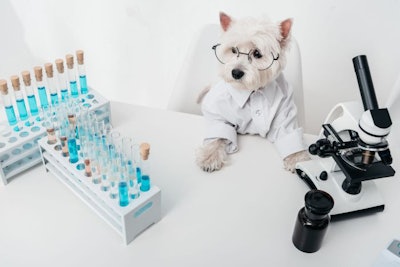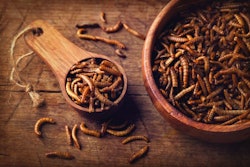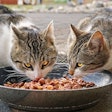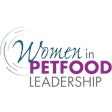
Raw meat dog food may have been involved in transmitting Escherichia coli bacteria that caused a human urinary tract infection. Researchers analyzed the DNA from bacteria found in hundreds of dogs’ feces in the United Kingdom. Along with evidence of spreading the germs to people, dogs fed raw pet food may have harbored antibacterial-resistant strains of E. coli.
From August 2017 to March 2018, scientists at the University of Bristol gathered survey data from dog owners in the U.K. Their study included 223 16-week-old dogs. Along with information about feeding, the dogs’ owners provided stool samples from their pets. The journal One Health published the results of this study.
Antibacterial-resistant bacteria in raw dog food
The feces of dogs fed raw food tended to show the presence of fluoroquinolone-resistant E. coli and bacterial strains resistant to tetracycline, amoxicillin, and streptomycin, but not to cefalexin.
“If owners insist on feeding raw meat to their dog, it is essential that they fully understand this practice puts their dog at risk of becoming colonised with bacteria resistant to critically important antibacterials,” the scientists wrote.
The researchers compared their data on bacteria in dog feces to genomes of bacteria from human urinary tract infections in the region. One of those strains from the dog study showed the least genetic variation from one of the strains in the human cases, even when compared to other human urinary tract E. coli.
“This study provides clear evidence of the fecal carriage within puppies of FQ-R E. coli clonally related to those that have also caused urinary infections in humans living in the same geographical region, collected within months of each other,” the scientists wrote. “This is suggestive of sharing between humans and dogs."


















